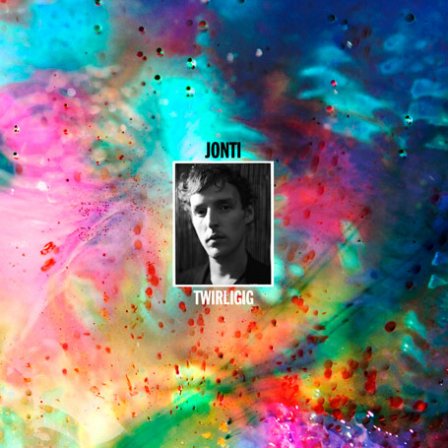Twirligig. It could almost be the name of a character in Pokémon, couldn’t it? It’s cute-sounding: silly; sub-‘tween,’ if you like; ‘kiddie.’ It’s not often you can say that about an album title, least of all one that’s meant to be respectable.
This is no surprise, of course. One of rock’s most consistent gestures over the years (and I mean rock here in the broadest and most irresponsible sense — from Elvis to electro) has been a ‘rebel misogyny’ of one form
or another. It’s about fleeing the nest, usurping the mother, the discovery of the body and desire. Rock, in other words, takes place after puberty. It’s frequently juvenile, but almost never pre-teen. Where teeny-bop is ‘light,’ rock is ‘heavy’: it’s of consequence. Even when it’s dumb, it’s serious.
Clearly, we’re well into the realms of generalization and cliché here. But this is the backdrop against which Twirligig needs to be read. When Mark Ronson applauds Jonti for making music that is ”really unusual,” it’s precisely his anti-rockism that makes it so. Jonti’s music actively celebrates the ‘light,’ the silly, the inconsequential, and cartoonish.
In terms of precursors, the most obvious reference is Plone, a trio from Birmingham in the UK who pioneered a kind of ‘kiddietronica’ on Warp in the late 90s. On Twirligig, the atmosphere is not dissimilar. But where Plone set out to appropriate and valorize the sounds of toy pianos, kids’ xylophones, and a whole host of prepubescent bleeps and burps, Jonti’s more interested in interstitial musics: those of non-time and non-place. “Hornets Nest,” “Nightshift in Blue,” “Batmilk,” “Firework Spraying Moon,” “Frightened Mice (Dots),” and title track “Twirligig” all apply a glitchy, stuttering mid-tempo beat to what sounds disconcertingly like elevator music, the kind of thing you’d hear in a waiting room, lobby, or in a deserted lounge or bar. Oh yes… and a layer of Beach Boys-style harmonies too. As if to imply a dimension of consequence or weight. Twirligig is hauntological, then, in the sense that it involves the valorization of musics thus far confined to the dustbin of history. Witness the birth of ‘loungetronica,’ or — why not? — ‘muzakwave’!!
If all this sounds interesting in a Warp(ed) kind of a way, the real shame is that Jonti doesn’t push this aesthetic as far as he might. The album’s distinctly lacking in structure or direction. It doesn’t have the integrity, commitment, or intensity of something like Mordant Music’s Dead Air. Somehow, it never manages to transcend its own lightness. The tracks soon start to plod and, despite the fact that it’s brief at 33 minutes, listening all the way through feels a bit of a slog.
That’s not to say there aren’t good tracks here. “Koi Moon’s Daughter” and “Passaros” deserve a special mention for being the tracks where the whole Beach Boys-go-electro thing works best. And the others I’ve name-checked above really aren’t bad. If this album’s remembered for anything, I hope it will be for raising the profile of an electro scene that has been brewing away in Sydney for a good three or four years now with far less recognition that it deserves. In interviews, Jonti has in fact been pretty upfront about the influence this scene has had on him. So I won’t feel too guilty about hijacking the rest of this review for a bit of name-checking: while Jonti may have been the guy lucky enough to win a trip to L.A. last year to work with Ronson and a few other ‘anointed ones,’ his fellow Sydneysiders Ghoul, Collarbones, Guerre, Fishing, and Seekae are all equally good, if not better. Home to the remarkable Galapagoose, Melbourne collective This Thing is putting together some pretty interesting music too.
Seekae, however, are undoubtedly the pick of the bunch. Like Jonti, they have a keen ear for the peculiar and the playful. But there’s more going on in terms of musicality and emotional punch. Seekae know how to swell and surge, to give depth to lightness. I hesitate to say that there’s something distinctly Australian about these acts. But they’re certainly the product of a particular time and a particular scene. And should Jonti’s recent collaborations with Ronson and Odd Future’s Hodgy Beats propel him on to greater visibility on the international stage, I sincerely hope that he’ll be able to give the rest of the bunch a bit of a helping hand.
